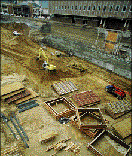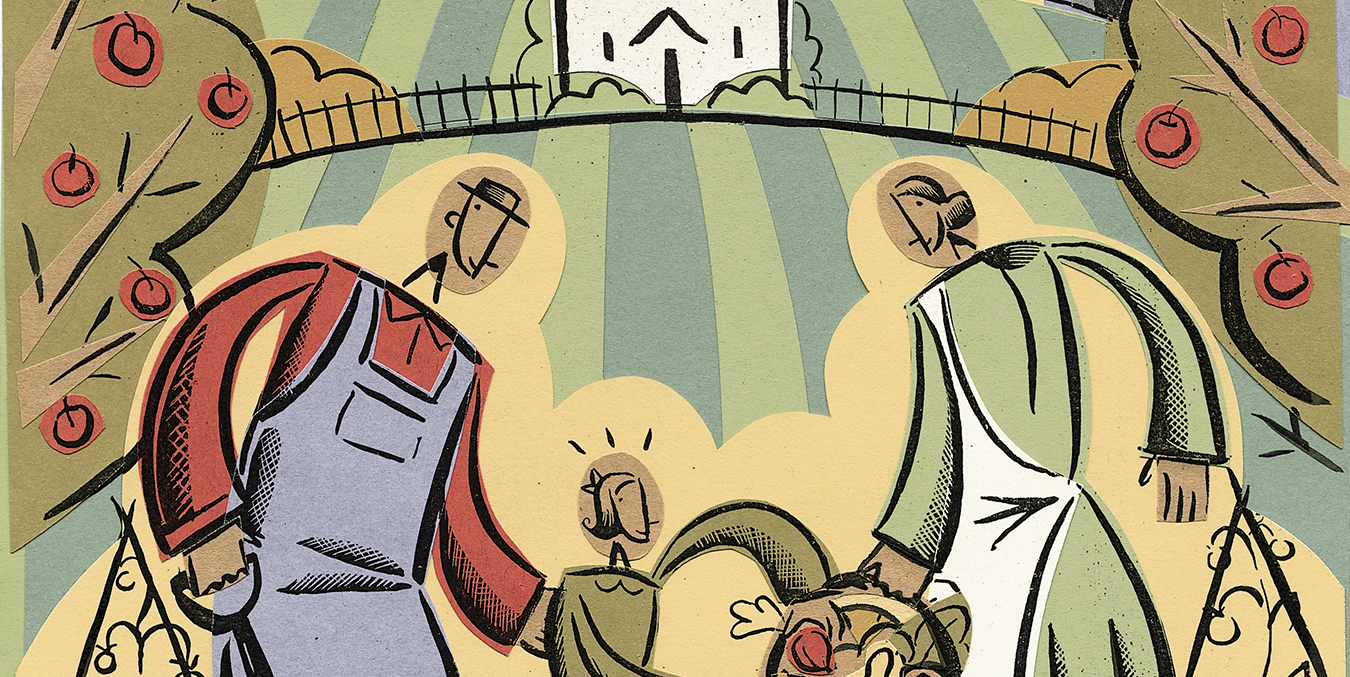 By Peter Gardner, Editorial Intern
By Peter Gardner, Editorial Intern
I can still remember a time when the best indication of a day well spent was a toss up between the gross number of grass stains on my body and the total volume of treasure (junk, according to Mom) in my pockets. It was a time of lemonade, super balls, and the ice cream truck. Imagination was more important than income, curiosity outweighed career, and productivity didn’t hold a candle to play. Thinking about that golden era naturally takes me back to the very foundation of childhood imagination–the sandbox.
At the sandbox the child is lord of his grainy realm. As architect his plans for each day’s construction are predictable: bigger town, more tunnels. He also happens to be an expert dump truck, tractor, or crane operator as the situation may require. But his work as demolition crew manager is where his refined skills are best showcased.
In my childhood sandbox the coveted real estate was co-inhabited with other, less-enlightened sand dwellers. From the corner where the boards came together, a black stream of ants daily marched to the monotonous rhythm of industry and progress. All day, every day the relentless workers were busy, loaded down with heavy supplies to appease the demands of their society. And what kept those single-minded slaves at their furious pace all day? There was no tyrant overseer, no chance of advancement in ant society, not even hope for a raise (in whatever ants are paid). No, their insatiable desire appeared to be nothing more than a bigger hill of sand and dirt.
More recently I recall leaving the Jesse Knight Humanities Building on a warm spring morning. As I joined the crowded column of backpacked students bustling alongside the library construction pit, I was taken back to my beloved sandbox. We scurried along with antlike determination–eyes focused on the walkway, bodies hunched under the weight of our cargo–oblivious to the giant sandbox on the other side of the fence. Our minds were elsewhere, dreaming about distant anthills of grades, career, and success.
Despite the dedicated swarm’s rush to the bigger and better, many of those nearest the fence seemed happily distracted by the sounds and motions in the gaping cavity to their side. Several students had completely broken free of the current and lingered in an eddy alongside the restraining fence. They stood with faces pressed against the chain links, staring wide-eyed into the pit, captivated by the tractors’ laborious movements below. Intrigued, I forced my way through the determined crowd and found a place beside a reverent student. From our vantage point the idle bulldozer four stories below appeared just about the right size to reach out and grab. It took all I had to keep from saying “vroom, vroom” every time a tractor picked up a load of dirt in its bucket. And when the huge arm of the crane turned and dropped its weighty load, we all had trouble suppressing our giddy delight. We could have stayed for hours, but eventually my neighbor’s digital watch beeped the hour and with a sigh we rejoined the masses and hurried on our respective ways.
Henry David Thoreau would probably have taken issue with our antlike tendencies.
Thoreau distrusted an increasingly fast-paced world and pulled himself, mentally and physically, from the swift currents of his contemporary society. Walden Pond was his sandbox–a realm where he could create his own world and, more important, where he could discover the world around him. A meticulous observer of nature, the world was literally his campus.
“I went to the woods because I wished to live deliberately,” he wrote, “to front only the essential facts of life, and see if I could not learn what it had to teach, and not, when I came to die, discover that I had not lived.”
Too often, with blood pumping through our veins and air rushing into our lungs, we fail to truly live–we only go through the external motions of life. Certainly we should heed the lessons the ants offer: work, productivity, endurance–all necessary for sustaining life. But it is the imagination, wonder, and creativity in the sandbox around us that give our lives meaning.
Soon the library expansion will be completed, the tractors and crane will drive away, and the sandbox that has fascinated professors and students alike for almost two years will be buried under grass and trees and sidewalks. Surely the unavoidable demands of society and life will continue compelling us to attend to the lackluster and mundane. Hopefully, we will find new realms of discovery to occasionally distract us from life’s necessities to its possibilities, if only for sanity’s sake. If we keep our eyes open, we shouldn’t have to look far.









